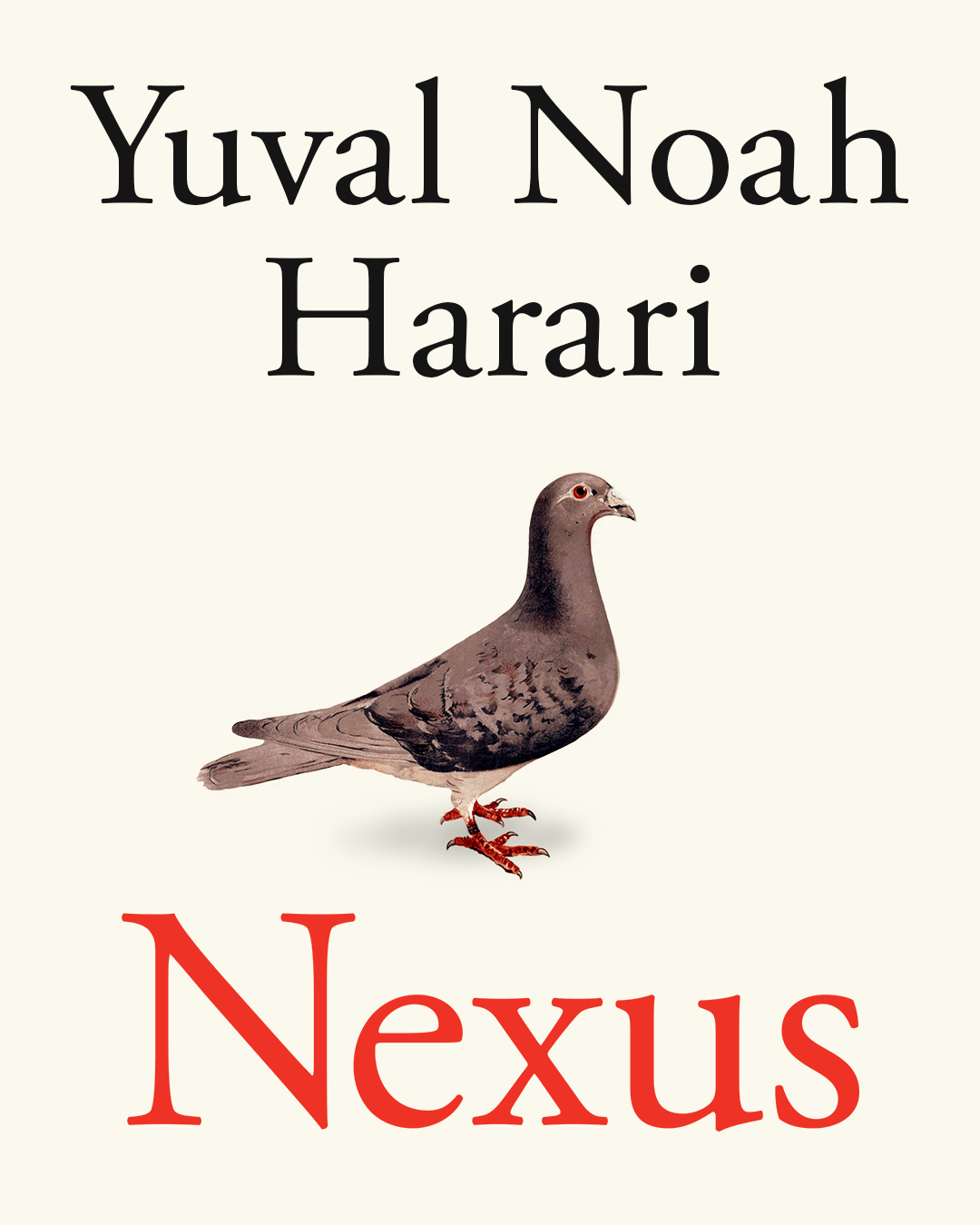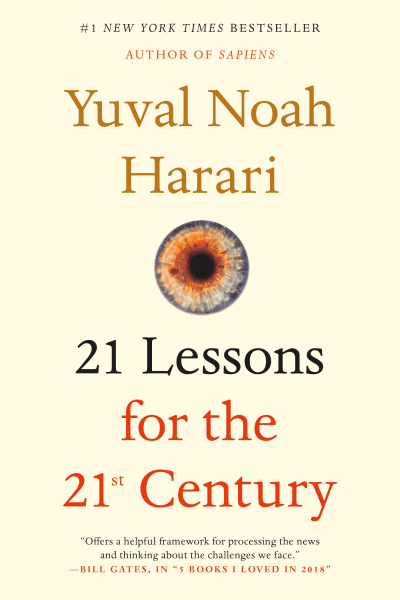
From renowned historian and #1 global bestselling author Yuval Noah Harari comes the groundbreaking story of how information networks have made, and unmade, our world
Available Now

For the last 100,000 years, we Sapiens have accumulated enormous power. But despite all our discoveries, inventions, and conquests, we now find ourselves in an existential crisis. The world is on the verge of ecological collapse. Misinformation abounds. And we are rushing headlong into the age of AI—a new information network that threatens to annihilate us. For all that we have accomplished, why are we so self-destructive?
Nexus looks through the long lens of human history to consider how the flow of information has shaped us, and our world. Taking us from the Stone Age, through the canonization of the Bible, early modern witch-hunts, Stalinism, Nazism, and the resurgence of populism today, Yuval Noah Harari asks us to consider the complex relationship between information and truth, bureaucracy and mythology, wisdom and power. He explores how different societies and political systems throughout history have wielded information to achieve their goals, for good and ill. And he addresses the urgent choices we face as non-human intelligence threatens our very existence.
Information is not the raw material of truth; neither is it a mere weapon. Nexus explores the hopeful middle ground between these extremes, and in doing so, rediscovers our shared humanity.
Order Now
About the Author

Professor Yuval Noah Harari is a historian, philosopher, and the bestselling author of Sapiens: A Brief History of Humankind, Homo Deus: A Brief History of Tomorrow, 21 Lessons for the 21st Century, and the series Sapiens: A Graphic History and Unstoppable Us. His books have sold forty-five million copies in sixty-five languages, and he is considered one of the world’s most influential public intellectuals working today. Born in Israel in 1976, Harari received his Ph.D. from the University of Oxford in 2002 and is currently a lecturer at the Department of History at the Hebrew University of Jerusalem. He co-founded the social impact company Sapienship, focused on education and media, with his husband Itzik Yahav.
More from Yuval Noah Harari

21 Lessons for the 21st Century
#1 NEW YORK TIMES BESTSELLER
NAMED ONE OF THE BEST BOOKS OF THE YEAR BY FINANCIAL TIMES AND PAMELA PAUL, KQED
How do computers and robots change the meaning of being human? How do we deal with the epidemic of fake news? Are nations and religions still relevant? What should we teach our children?
Praise for Previous Work
“[I]nteresting and provocative.”— Barack Obama
“Important reading for serious-minded, self-reflective sapiens.” — The Washington Post
“Homo Deus will shock you. It will entertain you. Above all, it will make you think in ways you had not thought before.” — Daniel Kahneman
“Tackles the biggest questions of history and of the modern world.” — Jared Diamond
“His ideas are gripping and thought-provoking.” — New York Times
“Harari is a brilliant popularizer: a ruthless synthesizer; a master storyteller . . . and an entertainer constantly enlivening his tale with chatty asides and modern parallels.” — The Guardian
By clicking Sign Up, I acknowledge that I have read and agree to Penguin Random House's Privacy Policy and Terms of Use and understand that Penguin Random House collects certain categories of personal information for the purposes listed in that policy, discloses, sells, or shares certain personal information and retains personal information in accordance with the policy. You can opt-out of the sale or sharing of personal information anytime.
Penguin Random House will publish Nexus in additional territories including the UK (inc. India, South Africa, Australia & NZ), Canada, Germany (inc. Austria), Spain (inc. Latin America), Brazil, and Portugal.
